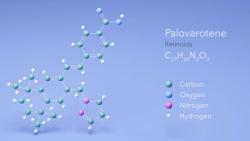
OR WAIT null SECS
- About Us
- Advertise
- Contact Us
- Editorial Info
- Editorial Advisory Board
- Do Not Sell My Personal Information
- Privacy Policy
- Terms and Conditions
© 2026 MJH Life Sciences™ , Pharmaceutical Technology - Pharma News and Development Insights. All rights reserved.
The Role of the Quality Unit
The differences between the quality control and quality assurance units can be found in their names, according to Siegfried Schmitt, principal consultant at PAREXEL.
Q: The US Code of Federal Regulations (CFR) mentions the role and responsibilities of the quality control unit in 21 CFR Parts 210 and 211 (1); however, there is no mention of a ‘quality assurance unit.’ Can you advise on the correct distinction between these two entities?
A. This can indeed be confusing, especially as other regulations and guidance documents refer to a ‘quality assurance system’ (2). Additionally, the European Union current good manufacturing practice (CGMP) regulations require a quality control (QC) unit and mention a quality assurance (QA) unit without being specific about the differences between these two roles (3). In general, only the tasks of the quality control unit are detailed in the regulations. The difference in the respective roles lies in the titles (4): control serves as the activity of managing, while assurance grants freedom from doubt.
In a pharmaceutical enterprise, it is necessary to measure, test, check, or verify things such as incoming materials, in-process/finished product samples, environmental conditions, etc., which are often part of programs like environmental control or process control. These require the active involvement of the quality control unit, with the support of analytical laboratories or metrology workshops.
A pharmaceutical company must establish a pharmaceutical quality system (PQS) (5), which governs all regulated pharmaceutical activities, and is implemented, maintained, and owned by the quality assurance unit. A PQS provides a framework that enables a company to operate in accordance with the regulations and its marketing authorization, therefore enabling compliance. Quality assurance can be viewed as the legislative, with the QC unit being the executive. The below examples describe this difference:
- Standard operating procedures (SOPs): An operating unit within the company writes the SOP using templates and following guidance provided by QA. The QA department’s signature does not normally confirm the technical accuracy and correctness of the contents of the SOP; rather, QA’s signature on the SOP certifies that it has been written using the correct template and followed the process prescribed in the PQS. The analytical laboratory, which is part of QC, prepares the SOP for sample storage. QC’s signature on this SOP certifies the correctness and accuracy of its contents, whereas QA’s signature will only confirm adherence to the PQS.
- Audit trail reviews: These reviews are performed regularly in computerized systems used in a regulated pharmaceutical environment, such as an analytical laboratory. QA should review the audit trail with regards to compliance with the PQS and the regulations; QC should perform the review with regards to the correctness of the analytical work performed.
- Sampling: While QC prepares the sampling procedures and takes samples, QA does not perform sampling. Rather, QA reviews the sampling procedures and observes the sampling in irregular intervals--typically unannounced. QA must, however, assure that all processes are duly described and followed in compliance with the PQS and the regulations. This process of review and observation is also referred to as an internal inspection.
In summary, despite some apparent vagueness in regulations, the roles and responsibilities of the QC and QA units can quite easily be deduced from their respective titles, and by carefully reading the regulations.
References
1. US Code of Federal Regulations
2. European Commission, Art 6 of EU Directives 2003/94/EC and 91/412/EEC.
3. European Commission, EudraLex Volume 4 Part 1 Chapter 2: Personnel.
4. TheSage English Dictionary and Thesaurus.
5. ICH, Q10 Pharmaceutical Quality System (ICH, June 2008).
Article Details
Pharmaceutical Technology
Vol. 41, No. 9
September 2017
Page: 66
Citation
When referring to this article, please cite it as S. Schmitt, "The Role of the Quality Unit," Pharmaceutical Technology 41 (9) 2017.

 Download Issue: Pharmaceutical Technology-09-02-2017
Download Issue: Pharmaceutical Technology-09-02-2017

